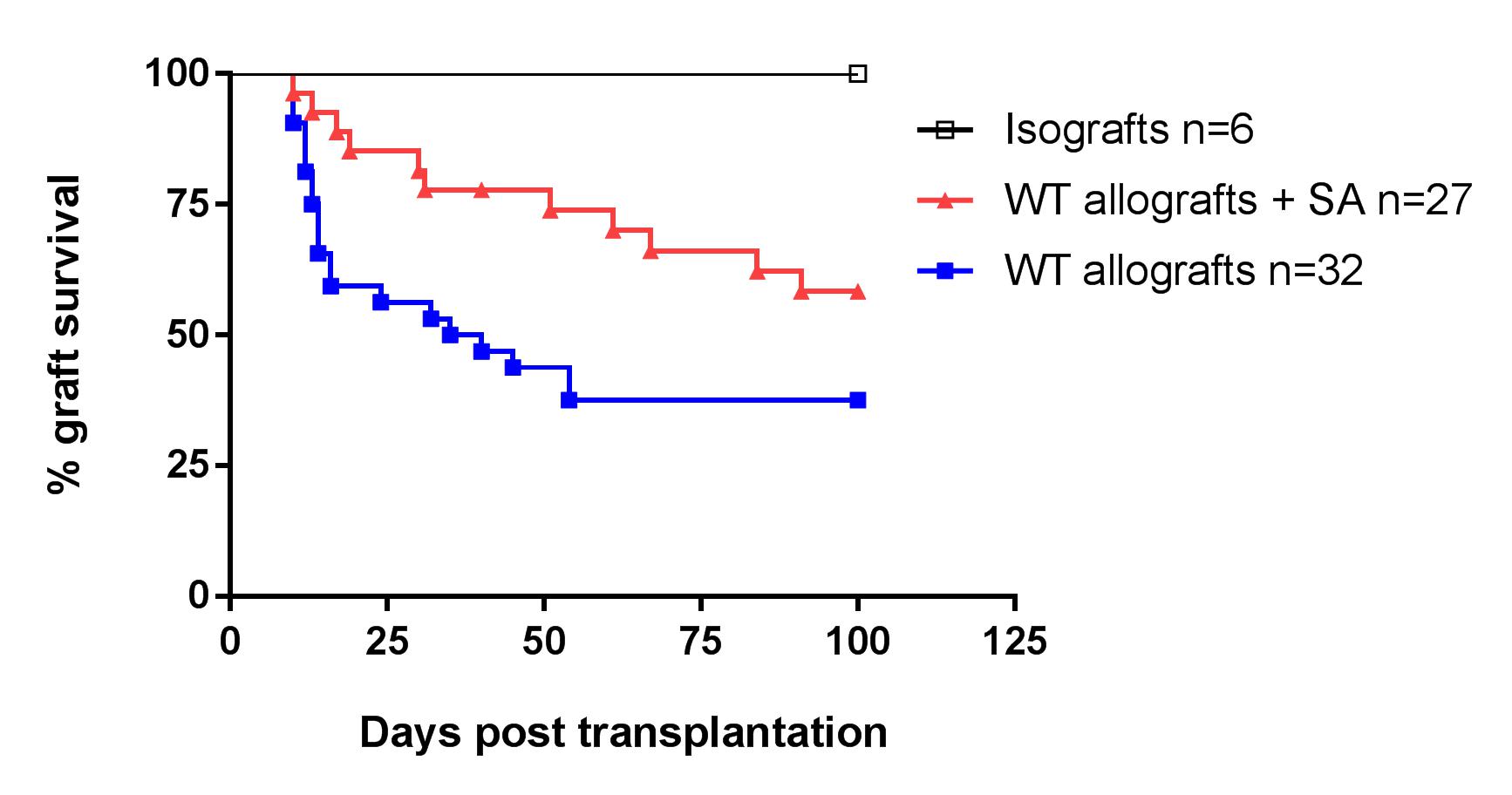Gut Microbial Metabolite Improves Function and Prolongs Kidney Allograft Survival in Mice.
1Kidney Node Laboratory, The Charles Perkins Centre and Renal Medicine, Sydney Medical School and Royal Prince Alfred Hospital, Sydney, Australia
2University of Sydney, Sydney, Australia
3Nutritional Immunometabolism Lab, The Charles Perkins Centre, Sydney Medical School, Sydney, Australia
4Nephrology Department, The Children Hospital at Westmead, Sydney, Australia
Meeting: 2017 American Transplant Congress
Abstract number: 448
Keywords: Graft survival, Kidney transplantation, Rejection, Renal injury
Session Information
Session Name: Concurrent Session: New Pathways in Allograft Rejection
Session Type: Concurrent Session
Date: Tuesday, May 2, 2017
Session Time: 2:30pm-4:00pm
 Presentation Time: 2:54pm-3:06pm
Presentation Time: 2:54pm-3:06pm
Location: E352
To determine the impact of dietary administration of the gut microbial metabolite sodium acetate (SA) on kidney rejection and survival in a fully MHC-mismatched murine model of kidney transplantation.
Methods: Life-sustaining transplants were performed: BALB/c kidney into nephrectomised C57BL/6 mice. The intervention group received 200mg/kg SA ip for 14 days post-transplantation, followed by oral 150mM SA solution (WT+SA allografts, whilst the control group received neither (WT allografts). Two experiments were performed: (1) survival study to 100 days; (2) Histological and functional assessment of groups sacrificed on days 14 and 100, to assess impact on acute and chronic allograft rejection responses respectively.
Results: WT+SA allografts had significantly increased survival compared to WT allografts (Figure 1, 16/27 vs 12/32, p<0.05). At day 14, WT+SA allografts exhibited significant reductions in serum creatinine (32.0±3.94 vs 50±19.2[micro]mol/L, p<0.05) and tubulitis scores (76.33±14.4 vs 142.7±35.3, p<0.0001) compared to WT allografts. WT+SA allografts also exhibited increased CD4+ T cell (107.1±20.6 vs 73.1±31.7 cells/HPF, p<0.05) and Foxp3+ Treg accumulation (34.3±8.2 vs 22.7±6.3 cells/HPF, p<0.01) compared to WT allografts. Similarly, day 100 WT+SA allografts also had significantly improved renal function (28.5±6.12 vs 48.8±26.8, p<0.05) and reduced proteinuria (0.40±0.27 vs 1.21±0.31mg/16hr, p<0.0001). The survival benefit conferred by SA was abolished by depletion of CD25+ Tregs using the monoclonal antibody PC61 (16/27 vs 5/17, p<0.05).
Conclusions: Dietary administration of SA was protective against the development of acute allograft rejection and chronic allograft injury. The mechanism is likely to involve increased regulation by T regulatory cells.
CITATION INFORMATION: Wu H, Kwan T, Loh Y, Chen X, Macia L, Alexander S, Chadban S. Gut Microbial Metabolite Improves Function and Prolongs Kidney Allograft Survival in Mice. Am J Transplant. 2017;17 (suppl 3).
To cite this abstract in AMA style:
Wu H, Kwan T, Loh Y, Chen X, Macia L, Alexander S, Chadban S. Gut Microbial Metabolite Improves Function and Prolongs Kidney Allograft Survival in Mice. [abstract]. Am J Transplant. 2017; 17 (suppl 3). https://atcmeetingabstracts.com/abstract/gut-microbial-metabolite-improves-function-and-prolongs-kidney-allograft-survival-in-mice/. Accessed February 25, 2026.« Back to 2017 American Transplant Congress
